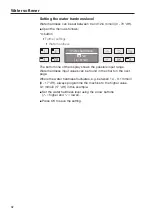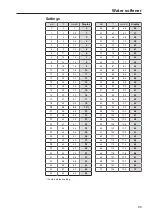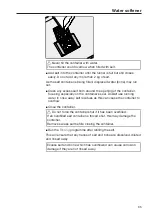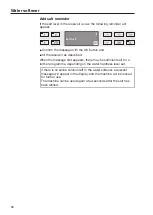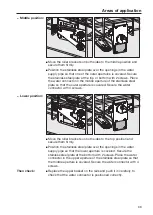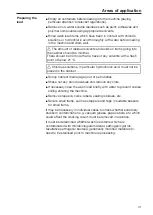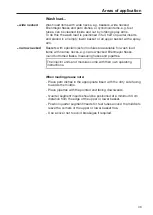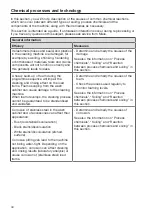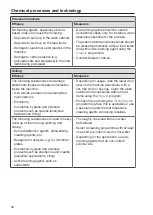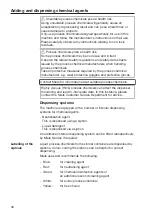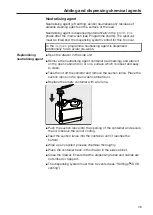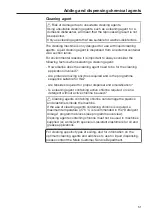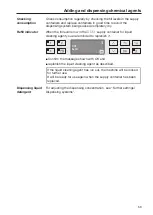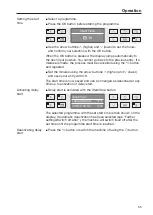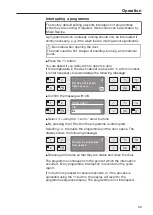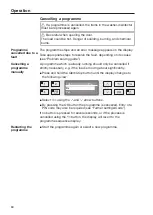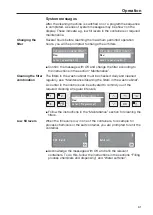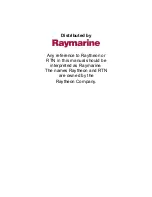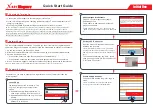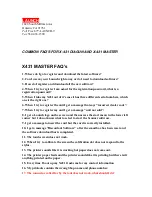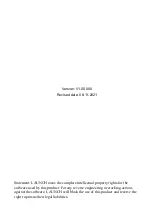
Chemical processes and technology
46
Process chemicals
Efficacy
Measures
De-foaming agents, especially silicone-
based ones, can cause the following:
- Deposits to build up in the wash cabinet
- Deposits to build up on the load items
- Damage to elastomers and plastics in the
machine
- Damage to certain plastics (e.g.
polycarbonate and plexiglass) in the load
items being processed
- De-foaming agents should be used in
exceptional cases only; for instance, when
absolutely essential for the process.
- The wash cabinet and accessories should
be cleaned periodically without load items
and without de-foaming agent using the
Organic
programme.
- Contact Miele for advice.
Soiling
Efficacy
Measures
The following substances can damage
elastomers (hoses and seals) and plastics
inside the machine:
- Oils, waxes, aromatic and unsaturated
hydrocarbons
- Emollients
- Cosmetics, hygiene and skincare
products such as creams (analytical
applications, filling)
- Depending on usage, wipe the lower door
seal on the machine periodically with a
lint-free cloth or sponge. Clean the wash
cabinet and accessories without load
items using the
Organic
program.
- Process the load using the
Oil programme
programme (where this is available) or use
a special programme that dispenses
cleaning agents containing tensides.
The following substances can lead to heavy
build-up of foam during washing and
rinsing:
- Some disinfection agents, dishwashing
cleaning agents, etc.
- Reagents for analysis, e.g. for microtiter
plates
- Cosmetics, hygiene and skincare
products such as shampoos and creams
(analytical applications, filling)
- Active foaming agents such as
surfactants
- Thoroughly rinse load items in water
beforehand.
- Select a cleaning programme with at least
one short pre-rinse in cold or hot water.
- Depending on the application, use de-
foaming agents that do not contain
silicone oils.

